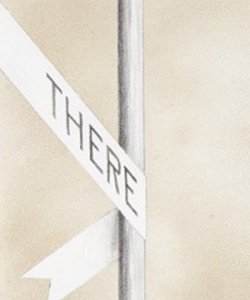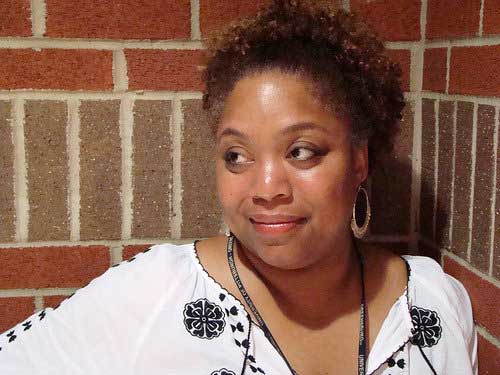America: Now and Here
First watch this introduction to America: Now and Here, then read Alex Dimitrov's article about the role poetry is playing in the national art project, in the current issue.
Jump to navigation Skip to content
First watch this introduction to America: Now and Here, then read Alex Dimitrov's article about the role poetry is playing in the national art project, in the current issue.

America: Now and Here is a modern-day traveling show that brings the work of some of America’s leading poets, musicians, visual artists, playwrights, and filmmakers to audiences across the country.

As Robert Casper settled into his new role as the director of the Poetry and Literature Center at the Library of Congress, he spoke about what the center has to offer and his plans for how to make the most of its resources and reach.
A nearly seventy-year-old literary award that honored works in all genres by young, emerging writers is buckling under the pressure of budget woes. Booktrust, the organization that has for the past nine years sponsored the John Llewellyn Rhys Prize, given since 1942 to writers under the age of thirty-five, announced earlier this week that government funding cuts forced it to revamp its program portfolio, shuttering the award—at least for 2011.
The prize, according to author Margaret Drabble, who won the award in 1966 and lamented its loss in the Guardian, is "one of the most romantic and distinguished of prizes," more so than the oldest major U.K. award, the James Tait Black Memorial Prize, or the Booker. The five-thousand-pound award (roughly eight thousand dollars) is given to writers "at the outset of their careers, when a sign of approval means much more than it does in their cynical, competitive, commercial later years."
The 2009 winner, Evie Wyld—who won for her novel, After the Fire, a Still Small Voice (Pantheon)—says the award "gave me a platform to work off, and I'm not sure I'd be in the position I am in now, had the Rhys not brought such a large amount of attention with it," including radio appearances and articles. Among the other poets and prose writers who have taken the prize in the past are Angela Carter, Andrew Motion, V. S. Naipaul, and Jeanette Winterson.
Booktrust, which is pursuing alternate avenues for maintaining the prize, told the Guardian it hopes to bring the Rhys "back with a bang as soon as possible," possibly even in 2012.
In the video below, Wyld reads from her winning book, a "romantic thriller about men who aren't talking."
In this clip the Miami New Times follows artist Agustina Woodgate as she sews poetry tags into clothes at local thrift shops.
Kore Press, whose mission is to publish diverse works by women writers, has temporarily suspended its eight-years-running poetry book competition for 2011. The nonprofit publisher will resume the contest in 2012, following a period of restructuring that, according to the press's business and marketing manager, necessitates a hiatus.
The short fiction contest will go on as planned this year, and the winner of last year's poetry book contest will see her debut published, as well. Michelle Chan Brown's Double Agent will be released in the fall.
In the video below, Brown reads from her chapbook, Clever Little Decoys, published by Love Among the Ruins last year.
Poet Kelly Norman Ellis, author of Tougaloo Blues and longtime P&W-supported writer and presenter of literary events, dotes on Chicago's South Side and the Neighborhood Writing Alliance.
I’ve lived and worked on Chicago’s South Side for almost thirteen years. As an educator and writer, I am attracted to organizations that express a commitment to writing and art outside the academic community. Our writing program at Chicago State seeks to coalition build with community organizations so that our students realize the benefits and necessity of teaching outside of the academy.
 The Neighborhood Writing Alliance (NWA) located on the South Side of Chicago fills this need. NWA runs writing workshops for adults in low-income neighborhoods throughout Chicago, and publishes selected pieces from those workshops in its quarterly award-winning publication, Journal of Ordinary Thought (JOT). Founded in 1996 by Hal Adams, Deborah Epstein, and Sunny Fischer, NWA grew out of JOT, which was founded by Hal Adams in 1991.
The Neighborhood Writing Alliance (NWA) located on the South Side of Chicago fills this need. NWA runs writing workshops for adults in low-income neighborhoods throughout Chicago, and publishes selected pieces from those workshops in its quarterly award-winning publication, Journal of Ordinary Thought (JOT). Founded in 1996 by Hal Adams, Deborah Epstein, and Sunny Fischer, NWA grew out of JOT, which was founded by Hal Adams in 1991.
Hundreds of Chicago adults have participated in NWA writing groups in a range of settings—from public libraries and public schools (where parents participate) to social service agencies and public housing projects. Workshops are conducted across ethnic lines. In one workshop, I taught African Americans born in Chicago, Mississippi, and Jamaica; Polish immigrants; fourth generation Irish Americans and second generation Mexican Americans. Participants in these workshops write primarily from their own experience, but through writing and discussion make connections between their personal experiences and broader social issues.
Workshop leaders are Chicago-based professional writers and arts educators such as Krista Franklin, Toni Asante Lightfoot, Parneshia Jones, Tony Lindsay, Carlos Flores, and Valerie Wallace, to name a few. NWA also has an impressive Writer’s Advisory Council, which includes Achy Obejas, Alex Kotlowitz, television journalist Bill Kurtis. The legendary Studs Turkel also served on the council before his death.
Our MFA program at Chicago State believes in the connection of writing and social justice. NWA demonstrates this principal at work by providing internships to our writing students on the graduate and undergraduate level, allowing them to experience the successful marriage of art and activism.
Photo: Kelly Norman Ellis. Credit: Natasha Marin.
Support for Readings/Workshops events in Chicago is provided by an endowment established with generous contributions from Poets & Writers Board of Directors and others. Additional support comes from the Friends of Poets & Writers.
Over the weekend, the American Museum of Natural History opened a yearlong exhibition of scientific photographs made using state-of-the-art technologies. If you're not in New York City to take in the show in person, check out some of the images online (Wired has a collection of favorites) and write a poem examining the life of the elegant forms and miniature worlds captured in exquisite detail.
The documentary film Committing Poetry in Times of War tells the story of Bill Nevins, a humanities teacher and youth poetry coach who was suspended and later fired from his teaching job after standing up for a student who wrote a poem critical of the war in Iraq. The entire film can be seen at Snagfilms.com.
Poetry and prose publisher Black Lawrence Press is accepting entries to its multi-genre book contest, with a special deal for writers who submit before June 30.
Entry to the St. Lawrence Book Award competition, open to both poetry and short story manuscripts, is fifteen dollars (reduced from twenty-five) until next Thursday. (The press offered a similar promotion last year for another of its prizes, with a choose-your-own-entry-fee model.)
The book prize offers one thousand dollars and ten copies of the published book. The deadline for entry is August 31, and finalists will be announced in October, followed shortly thereafter by the winner selection.
Past winners for poetry include Katie Umans for Flock Book, Brad Ricca for American Mastodon, Jason Tandon for Give Over the Heckler and Everyone Gets Hurt, and Stefi Weisburd for The Wind Up Gods. For fiction, Yelizaveta P. Renfro won for A Catalogue of Everything in the World: Nebraska Stories, Fred McGavran for The Butterfly Collector, and Marcel Jolley for Neither Here Nor There.
More details on the prize history and how to enter online are available on the press's website.